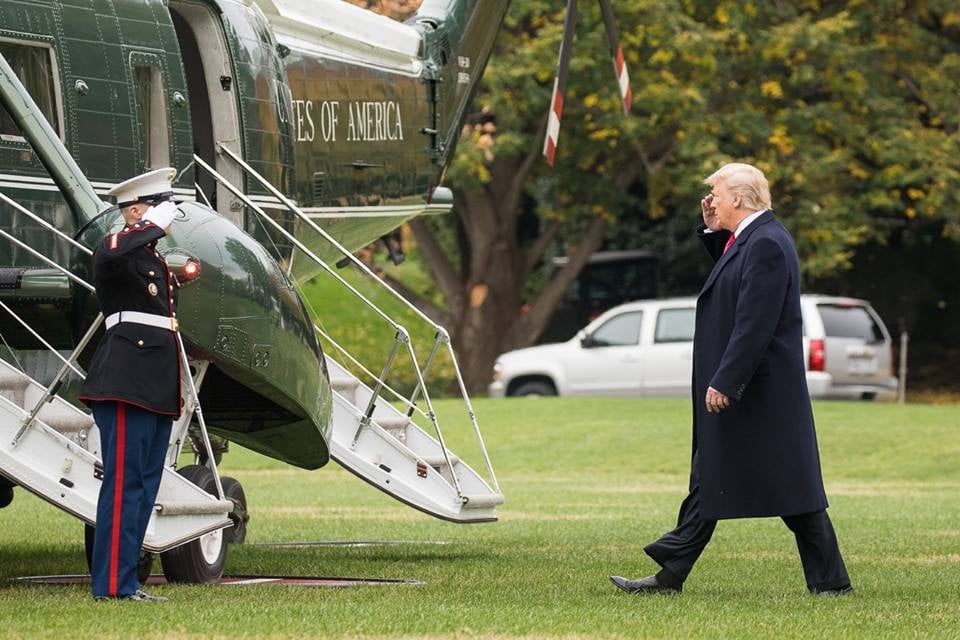With Qassem Soleimani’s death, Trump might take the advice Lyndon Johnson received during the Vietnam War – declare victory and get out.
By Amos Harel, Haaretz
An ability to improvise on short notice isn’t one of the main characteristics of the branches of the U.S. administration, and it seems President Donald Trump’s surprising decision to assassinate Iranian Quds Force chief Qassem Soleimani left the system somewhat confused and uncoordinated. This might be the context of the strange story Monday: The U.S. military’s announcement of its withdrawal from Iraq, to be quickly denied by the Pentagon.
The letter, signed by the commander of the coalition forces against the Islamic State, was sent to the Iraqi army and Defense Ministry. After it was made public, the Trump administration said it had not yet made a decision. The administration claimed that the letter had been an unauthorized draft sent to the Iraqis by mistake.
This was a farce. But a response like “a decision has not been made” reflects the almost automatic solution of a spokesman after the intentions of his organization have been uncovered in the media. The letter doesn’t seem to be a forgery, nor was it composed for no reason; it expresses an idea that the administration is seriously contemplating – expedited withdrawal of the 5,000 soldiers remaining in Iraq, whose presence is a remnant of the U.S. invasion in 2003.
In the spirit of the advice President Lyndon Johnson received during the Vietnam War – declare victory and get out – Trump might reach the same conclusion: Depict Soleimani’s killing as a historic victory and take advantage of the opportunity to limit the U.S. military commitment in the Middle East, particularly in Iraq.
After all, he objects to that presence. For more than a year now, Trump has been trying to remove the remaining U.S. forces in neighboring Syria, but he hasn’t been able to overcome the opposition of his generals.
From the reconstructions in the American media, it seems the decision-making in Washington before the assassination was characterized by the frantic spirit that has typified the three years of Trump’s term in the White House. The Pentagon had a long account to settle with Soleimani. Over the last decade he was responsible for the killing of nearly 700 American soldiers with ambush bombings by Iraqi Shi’ite militias under the guidance of the Revolutionary Guards.
In the United States, as in Israel, many observers considered Soleimani the “head of the octopus,” as Defense Minister Naftali Bennett once described him. In recent years, the U.S. administration considered escalating the battle against the Iranians by attacking the Guards.
The death of an American citizen in a Katyusha rocket attack by the Iraqi militias and then the storming by militia members of the U.S. Embassy in Baghdad spurred the president to respond. His advisers showed him a number of options.
That’s what Brig. Gen. (res.) Assaf Orion of the Institute for National Security Studies, who has been party to such discussions in the Israeli military, calls “Goldilocks and the three options”: The officers present possibilities, some of them too extreme, with the intention of guiding the political leaders to less dangerous options. But Trump, according to the American media, surprised his people and ordered the assassination option a few days before it took place.
The decision isn’t uncharacteristic of the president. In foreign policy, Trump usually insists on a number of basic principles: Don’t accept the humiliation of the United States (especially not his humiliation); when there’s a response, make it a strong one; and unexpected action is an advantage because it puts adversaries off guard and makes them think twice about future actions.
But the attempt to depict these elements as rational strategy is unconvincing. Time after time, it appears the president shoots from the hip and surprises not only America’s enemies but his own people and sometimes even himself.
Tehran read Trump completely wrong. It seems it assumed that it could continue slugging at the Americans and their allies in the region without paying a price. But now it has set a new objective – removing the Americans from Iraq and subsequently from the entire Middle East. And according to the first signals from Washington, this may be an attainable objective that might turn the Iranian defeat into something of a success.
A hasty American withdrawal would also serve the Iranians in strengthening the land corridor they established over the last two years after the defeat of the Islamic State. The corridor lets them move forces and weapons relatively easily through Iraq to Syria and Lebanon. Increased Iranian influence in Iraq, without an American counterweight, will worry its western neighbor, Jordan, which for years Iran has wanted to see destabilized.
So far, the Israeli leadership has good reasons to be satisfied with the American operation. Trump got rid of a resolute enemy of Israel and got other partners and proxies of the Iranians, above all Hezbollah chief Hassan Nasrallah, thinking twice before risking a violent action that might cost them their lives. But if the assassination leads to an evacuation of American forces from Iraq, as it seems now, this will be a problem for Israel.
Without American forces in the region, Washington’s commitment to take further steps against the Iranians will decline. The strike against Soleimani, flesh of the flesh of the Iranian regime, could make the leadership in Tehran rethink expediting the nuclear project to ensure its survival.
And even after the assassination, it’s hard to say whether Israel can be certain of an American willingness to act to prevent Iran from realizing this aspiration, despite Trump’s occasional tweets with caps lock on. After all, there’s a precedent – the administration’s utter failure, despite the president’s pronouncements, to curb North Korea’s nuclear program.



















